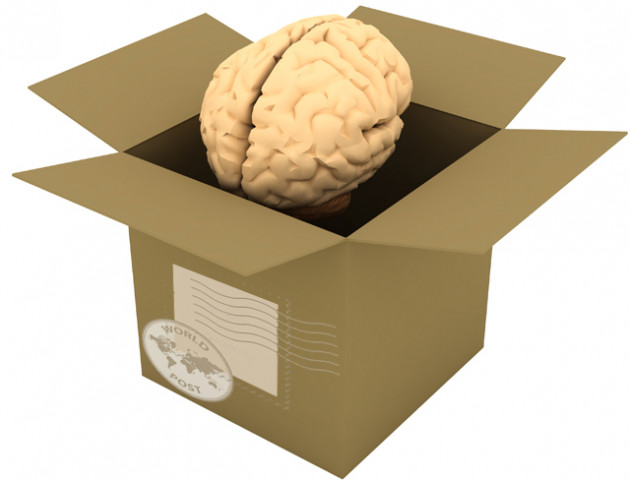Things your brain tog is trying to tell you
Discover the reasons clouding your brain

PHOTO: CREATIVE COMMONS
Happens to everyone, no big deal, until you realise it wasn’t just today at the mall; you’ve somehow spent most of your week feeling as if you’ve made major decisions behind a smokescreen. As if those brain cells were fogging up the place. As compiled from Prevention magazine and medicinenet.com, discover the reasons clouding your brain.
You’re stressing your brain into frenzy
Freaking out about your brain fog won’t do you any good, considering worrying could be what got you here in the first place. Whether you’re going through a divorce or you’ve lost a dear friend—it will probably also give you confusion and forgetfulness, simply because of the mental energy it takes to recover from the pain. “Stress impairs performance, physically and mentally,” says rheumatologist Robert Lahita, chairman of medicine at Newark Medical Centre at Rutgers in New Jersey. Try to keep a track on what really sets you off, whether it’s the overflowing laundry basket or your dominating co-worker, because zeroing in on what triggers stress could help you curb the fog, says Mady Hornig, associate professor of epidemiology at the Columbia University Medical Centre. “Identify potential patterns, then eliminate certain factors causing issues to feel more stressful.” If that sounds daunting itself, talking it through with a therapist might help you put the pieces together, Hornig says.
You’re eating for your belly, not your brain
Foods like fatty fish, leafy greens, and dark chocolate are all known for building mental muscle. If only it were as easy as grabbing a chocolate bar whenever you’re feeling foggy and forgetful. But there is some evidence, Lahita says, that obesity ups risk of cognitive decline, meaning you can add “preventing brain fog” to your list of reasons to stick to eating clean. If you want to get specific, make sure you’re consuming enough iron, an essential nutrient for memory and attention. In a small study of college-aged women, eating a protein-rich lunch for four months upped levels of iron in their blood and improved their brainpower. And quit with the overeating of halwa and saalan already — there’s a reason it’s called a food coma.
It’s time to say goodbye to bread
There’s a lot more to celiac disease or gluten allergy than belly bloat after indulging on garlic bread. People with the autoimmune disease can do lasting damage to their small intestines by eating gluten—and accumulate dense brain fog in the process. The good news for people with an actual celiac diagnosis is that going gluten-free really does help, and not just by keeping you out of the bathroom: in a small study of celiac patients who went G-free, brain fog lifted significantly. Before adopting the new diet, they scored as poorly on certain cognitive tests as if they had been jetlagged. A year later, things were blissfully back to normal. Try to ditch bread and see if it helps clear your mind.
Your mood swings are actually a big deal
Recent research found that the fuzzy thinking mentioned by people with depression or bipolar disorder actually shows up on brain scans. In the study, women with these conditions struggled more with a cognitive test than healthy women. The same area of the brain was active in all the women but women with depression or bipolar disorder had unusual amounts of activity going on in that region. Not only does that mean bipolar disorder and depression may not be as different as science once thought, psychologists say, but also “at a neurobiological level, it could be that the brain works differently” in mental health patients. With the assistance of certain meds or therapies, you might be able to address some of this difficulty focusing or concentrating, Ryan says, although some people with depression or bipolar do still report they don’t feel as sharp even when their mood feels stable.
You have multiple browser tabs open right now
You’ve already heard multitasking only makes you less productive, but maybe you haven’t listened. Try an experiment: close, say, 75 per cent of those tabs, and, for a few moments, practice the art of focusing. Maybe you’re just rusty. Researchers have found that over clogging your brain with too many tasks you’re trying to fulfill together can hurt your brain. Break the habit of multi-tasking and find yourself a clearer head, while upping productivity.
You started new meds
Is it just us or are those lists of possible side effects getting longer and longer with every new prescription we fill? Chances are you haven’t talked about your new pill’s side effects with your doctor. Certain antibiotics, incontinence meds, and even blood pressure pills can cause mental clouding, especially in older patients. Of course, there are also some obvious ones to keep in mind, including antidepressants, painkillers, and allergy meds. If you think one of yours is causing detrimental fog, talk to the physician who prescribed it about your alternatives.
By Umnia Shahid
Published in The Express Tribune, August 5th, 2015.
Like Life & Style on Facebook, follow @ETLifeandStyle on Twitter for the latest in fashion, gossip and entertainment.



















COMMENTS
Comments are moderated and generally will be posted if they are on-topic and not abusive.
For more information, please see our Comments FAQ